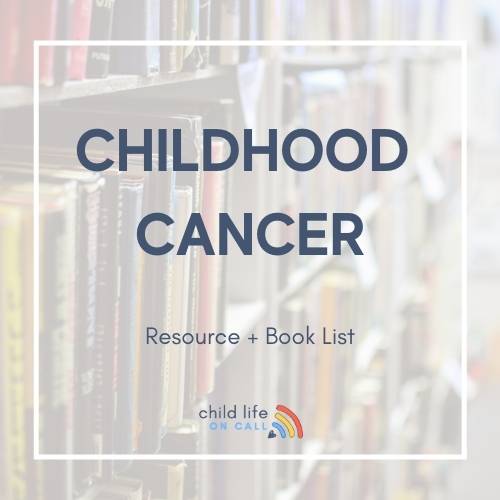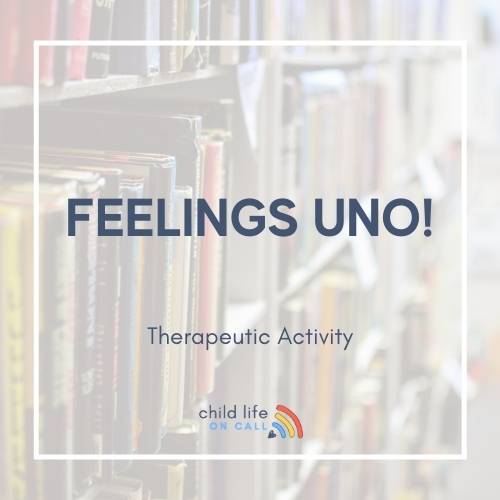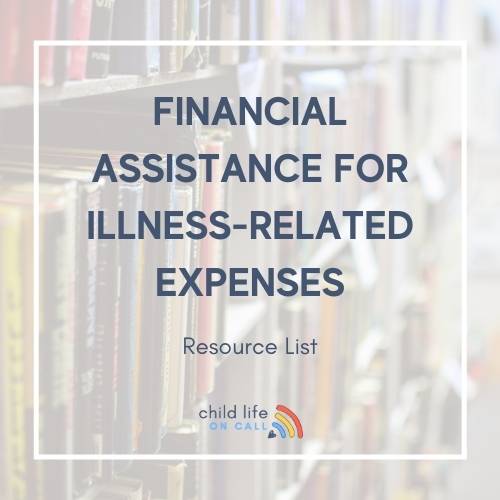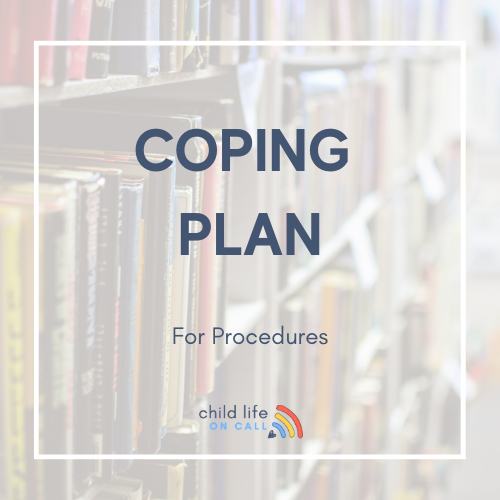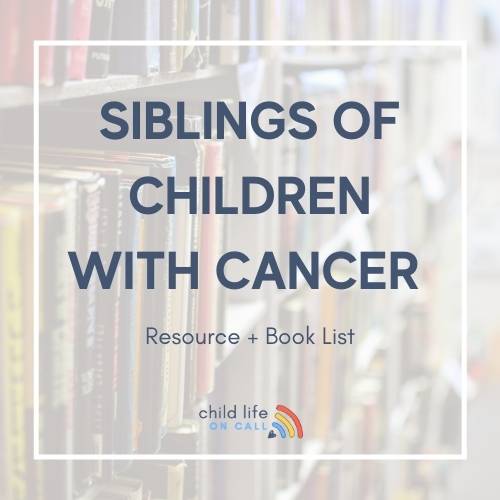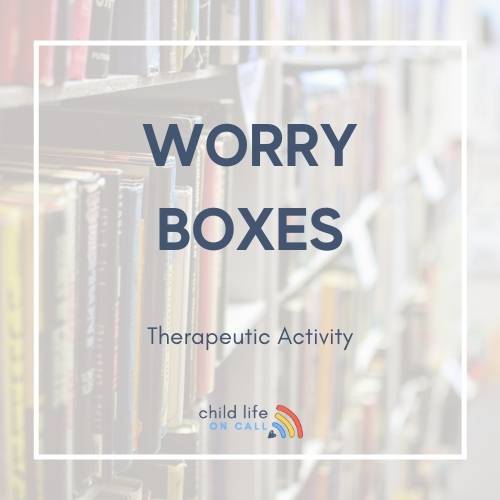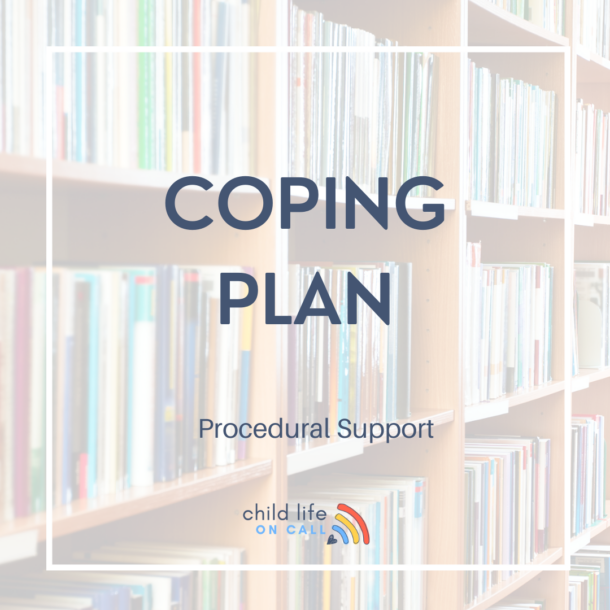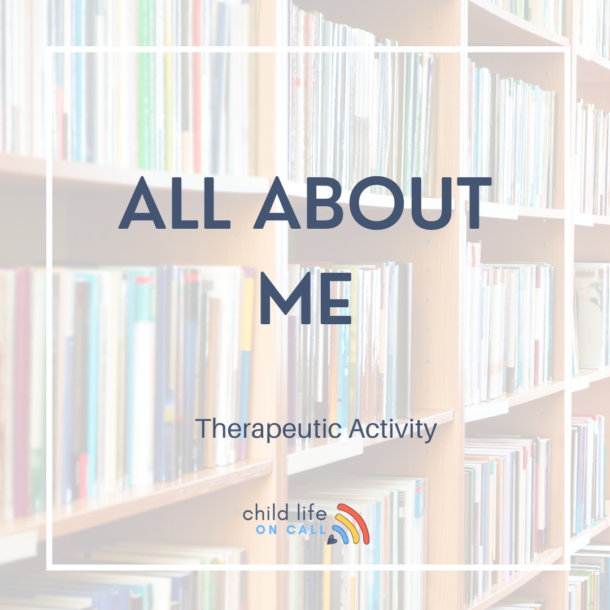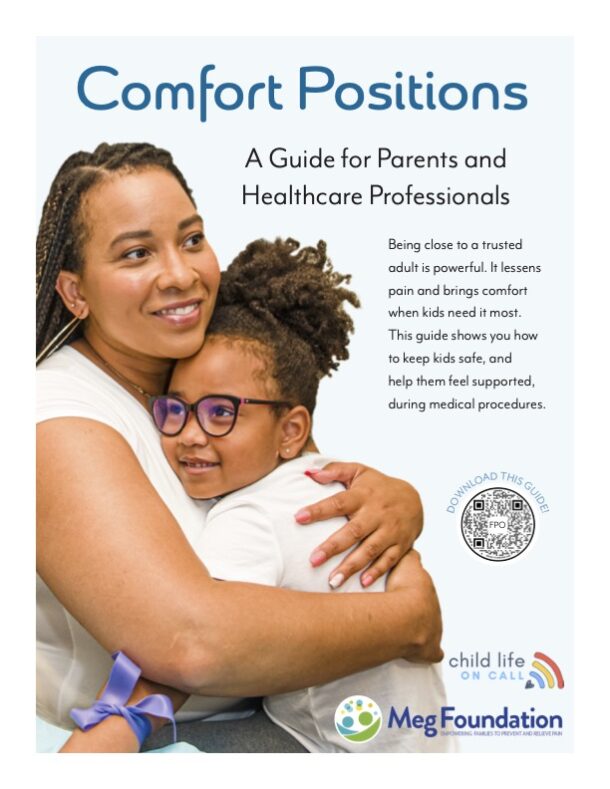"I feel like I owe it to him to explore other avenues. Acceptance doesn’t mean giving up; it means continuing to learn and adapt."- Lexi In this episode of Child Life On Call, Katie Taylor speaks with Lexi, a devoted mother of two, about her family's journey with...
Episode 194 | Keeley’s Story – A daughter with hydrops fetalis
Podcast Show Notes
A resilient child life specialist fights for her premature daughter’s life against the odds, facing the challenges of hydrops fetalis and hearing loss, while advocating for a supportive and inclusive healthcare system.
Do you want to find hope and support for your child’s medical journey? Are you looking for answers on how to navigate the challenges of prematurity, hydrops fetalis, and hearing loss? Our guest, Keeley Machen Schares, is here to share her solution so that you can find solace and guidance along your own path. Join us as Keeley reveals the key to achieving the result you desire – helping your child live a fulfilling life despite their medical conditions.
But the staff was also extremely great. So throughout our NICU stay everything was progressing as expected and honestly, even better than what the care team expected. – Keeley Machen Schares
My special guest is Keeley Machen Schares
Keeley Machen Schares is a highly experienced Child Life Specialist with a career spanning over seven years. She is currently based in North Texas, where she works at Child Life On Call, a renowned hospital. Keeley’s expertise in child life extends beyond her professional role, as she is also a mother to a nine-month-old daughter. Her journey as a parent took an unexpected turn when her daughter was diagnosed with hydrops fetalis during pregnancy. This personal experience has given Keeley a unique perspective on the challenges faced by parents of children with medical conditions. In addition to her work as a Child Life Specialist, Keeley has also taught child life courses at Louisiana Tech University. Her passion for supporting and empowering families shines through in her dedication to her profession and her commitment to sharing her own story. Keeley’s insights and experiences make her a valuable guest on this episode of Child Life On Call.
This is Keeley Machen Schares’s story:
Keeley Machen Schares, a Child Life Specialist, shares her personal journey as a parent of a premature daughter with hydrops fetalis and hearing loss. Keeley and her husband were faced with the overwhelming news of their daughter’s condition, and their world turned upside down. They found themselves Googling for answers and seeking guidance from medical professionals. The uncertainty and fear were palpable as they navigated the complexities of their daughter’s treatment plan and NICU stay. Keeley highlights the importance of clear and detailed communication from the medical staff, as it provided them with the reassurance and understanding they needed during this challenging time. The experience has deeply impacted Keeley’s perspective as a Child Life Specialist, fueling her commitment to support families with empathy and comprehensive care. Keeley’s story serves as a reminder of the resilience and strength that parents possess when faced with unexpected medical challenges.
In this episode, you will be able to:
-Discover the powerful impact of a child life specialist in supporting parents through challenging medical journeys.
-Gain insights into the complexities of hydrops fetalis and pregnancy complications, and how they can be managed and overcome.
-Understand the emotional toll that a NICU stay can have on parents and learn strategies for self-care and coping.
-Explore the journey of a hearing loss diagnosis and the life-changing benefits of cochlear implants for children.
-Learn about the importance of advocacy for deaf children and how parents can navigate the educational system to ensure their needs are met.
Navigating visits and the emptiness of leaving
Having a child in the NICU for an extended period can lead to an abrasive contrast between the realities of hospital and home. Leaving behind a helpless newborn at the hospital every day can trigger a conflicting myriad of emotions. It’s like trying to live in two worlds at the same time where one is filled with the joy of parenthood, and the other reels under the weight of the child’s medical condition. In the case of Keeley and her family, leaving the hospital without their precious newborn was heart-tugging. Leaving behind an empty baby seat can amplify that feeling of emptiness. What added more to their difficult journey was spending all the holidays, including their birthdays and Christmas, in the hospital, away from the comfort of their home.
The significance of scent cloths
The bond between a mother and her newborn is often considered sacred. When the arrival of her baby is met with complications and hospital stays, this bond may become disrupted, leading to feelings of attachment strain. However, even in these circumstances, there are heartwarming ways in which the connection between parents and their newborn can be nurtured, one of them being through the use of scent cloths. In Dottie’s case, there was a scent cloth program in place in the NICU. Keeley and her husband would leave their scent on a cloth in Dottie’s isolate while a cloth with Dottie’s scent helped Keeley maintain her milk supply while pumping. This simple act helped solidify that special connection between them despite Dottie’s hospitalization and gave them a sense of bonding during an otherwise trying time.
Cochlear Implants and Hearing Aid Phase
Navy Seal Admiral McRaven famously said, “If you want to change the world, don’t ever, ever ring the bell.” The acceptance or immobility that follows a child’s life-altering diagnosis has the power to make or break their future. While a whirlwind of emotions and unanswered questions naturally follow such diagnoses, it’s important to remember that it’s not the end of the road. It’s about finding the right medical support, tapping into one’s resilience, and adapting to the new change the best one can. Dealing with Dottie’s profound hearing loss brought along challenges of its own for Keeley. Switching audiologists and ENT providers until they found the right team was tough, but they did it anyway. Dottie’s journey to receive cochlear implants revealed a whole new world to them. Along with preparing for her cochlear implant surgery in December, they also equipped themselves with knowledge about the deaf community and various facets of hearing loss.
The resources mentioned in this episode are:
-Visit the Child Life On Call website to listen to more episodes of the podcast and hear other parents’ stories about their experiences with medical diagnoses, diseases, and more.
-Check out the expert episodes on the podcast to gain valuable insights and information for both parents and professionals in the healthcare field.
-Explore the Child Life On Call hospital website to learn more about the services and support they provide for children and their families.
-Connect with Keeley Machen Schares on social media to stay updated on her experiences as a child life specialist and her journey with her daughter’s premature birth and hearing loss diagnosis.
-If you or someone you know is going through a similar experience with a child’s medical condition, consider sharing your story on the podcast to provide support and inspiration to other parents.
-Show your appreciation for healthcare professionals, such as ultrasound techs, who play a crucial role in diagnosing and caring for children by expressing your gratitude and acknowledging their impact.
-Take the time to create a support system for yourself during challenging medical experiences by reaching out to other parents who have gone through similar situations.
Whether you are a parent or professional, we want you to join our community. Sign up for our newsletter here.
Parents, download our free parent starter kit.
When you download our starter kit, you’ll learn how to:
- Give medicine to your child without it becoming a wrestling match
- Prepare your child (and yourself) for a shot so they can feel less anxious
- Create and use a coping plan for any medical appointment or procedure
The first sign of sniffles, or worse, shouldn’t send you into a tailspin. Feel confident in your role as a parent and advocate, no matter what medical situation you’re facing.
Child life specialists, get affordable PDUs on-demand here.
Shop for your CLOC gear here
Read the show transcript below
00:00:05
Hello, my friends. Welcome to Child Life On Call on call. This podcast is a safe place for parents to share their stories about what it’s like to have a child that has a medical experience, diagnosis, disease, and or everything in between. We know there is power in sharing stories, and that power multiplies when you can listen to other parents who have walked a similar path to yours. Giving and getting advice is great, but hearing how another parent navigates the complexities and nuances of healthcare is even better.
00:00:35
As a child life specialist, my role is to support, validate, and provide emotionally safe spaces for kids and their families. And I am so honored to be on this journey with you. In addition to parent stories, we sprinkle in some expert episodes every now and again that have content for both parents and professionals in the field of healthcare, all with the mission to empower parents to be confident advocates and partners with the care team during healthcare experiences. We’re so glad you’re here.
00:01:08
Tell us a little bit about who you are, your family, and a little bit about you. Keeley. Okay, awesome. My name is Keely Matron. I have a husband and a new daughter.
00:01:21
She is nine months old. It still feels weird to say that. I have a daughter and I’m a mom.
00:01:29
I live in North Texas, about an hour from Dallas, and I am also. A child life specialist. I’ve been a child life specialist for going on seven years now. And I work at Child Life On Call, which. Is the hospital that I have worked for.
00:01:45
I’ve just switched locations and then I also taught child life courses at Louisiana Tech University. So I’m super excited to talk on the podcast today to share more about my experience as a child life specialist, but then also my experience with having a premature baby and then also the journey that we’ve been on with her hearing loss diagnosis as well. I know when you said it’s excited to be called mom, it’s like such a cool title and it takes a while to get used to and I remember feeling that way too. Yeah, for sure. And I don’t know that it probably ever goes away.
00:02:27
I mean, I’m sure it does. Our moms would be fine with that title, but my kids are eight and five and I still feel like, oh. Like, today I was volunteering at their school and I was like, oh, I’m Keeley’s mom. And it just feels really cool. It does.
00:02:39
I know the first time that David, my husband, and I both said that. We were dottie as our daughter, her. Parents were we were actually paging to be let into the NICU. And I said, this is Keeley and David, because that’s how I’ve introduced ourselves. For the last five years.
00:02:54
And then they were like, Whose parents are you? And I was like, oh my gosh. This is Dottie’s mom and dad. I’m like, this is really surreal to. Be saying mom and dad.
00:03:04
Yeah. Oh, so cool. Well, why don’t you walk us through kind of the beginning? I know your journey finding out that something was going on with Dottie was a little bit different and that it happened before she was even born. So will you kind of walk us through those beginning phases and getting pregnant and finding out what was happening with her?
00:03:25
Yeah, of course. So my husband and I actually did fertility treatment to get pregnant, and then throughout my pregnancy, I had a pretty normal routine pregnancy. But due to us having fertility treatment, we had scheduled additional ultrasounds just to keep a close eye on the pregnancy, which I was very thankful for. And you’ll find out why. And whenever I was 32 weeks pregnant, I had a routine ultrasound scheduled that was an add on because of, like I said, with the fertility treatment added in.
00:04:01
And when we went to the routine ultrasound, I could tell that something was different than the other ultrasounds that we had been to. Once ultrasound tech left the room, I immediately told my husband, something just doesn’t feel right, something’s off. And I think that’s, like, when the mom gut started happening. What was it specifically? Do you remember?
00:04:24
Was it like a longer scan? Was it just this feeling? The way the tech reacted, I could. Tell that the ultrasound tech wasn’t making eye contact. And we had been to this office several times throughout my pregnancy.
00:04:38
We had multiple ultrasounds done, and I. Feel like there was kind of like. A vibe in the room. I can’t really describe it, but there was just something different about just the five minutes that she was in there. And she said that she was going to send us back out into the waiting room.
00:04:55
And then we would meet with my OB. That had never happened before. And my husband, he was like, no. They probably just want to see us. Because we’re getting closer to 40 weeks.
00:05:05
I’m like, okay, maybe so. But then actually, when our OB called us back, I immediately said, okay, just tell us what’s going on, because I have a feeling. And then also currently right now, my. Role is child specialist. I work in radiology, so I’m a little bit familiar with ultrasound process.
00:05:23
I help more with other procedures. But I have been in several ultrasound supporting families, and so I just felt like I had a better understanding that something was not going as planned. So our OB said that she was. Going to refer us to a fetal medicine specialist for an appointment, not to worry, not to Google anything, but that they found fluid around Dottie’s liver. And so, of course, any parent that’s.
00:05:53
Really hard to hear, like, okay, well. When is this other doctor going to call us? Where are they located? How soon can we go? If there’s fluid around her liver, what.
00:06:01
Does that mean, is there fluid around. Other parts of her body, or how are her other organs? We had all these questions, and Rob was really gracious and helped answer a. Lot of those questions, but without future. Testing and better diagnostic imaging, she wasn’t able to provide concrete answers.
00:06:20
And so we did probably what every parent would do. We Googled after she told us not to. I remember we left the doctor’s office. My husband and I drove separately because our plan was to return to work after, and we both got in the car. He called me once we got in the car, and he said, you’re not Googling, are you?
00:06:40
And I said, depends. Are you? And he’s like, I’ve already looked it up. We both decided just to take the. Day off of work that day, and we had our appointment the next morning at 08:00.
00:06:55
A.m. Okay, so they got you in pretty fast then. Yeah, and we were really thankful for that, because my husband also works in the medical field, and I feel like our minds were just going to different cases that we’ve seen in the hospital and with patients. And so once we got to the appointment, they were able to do further testing and diagnosed her with hydropatalis, which. I wasn’t familiar with, that I had never heard of that before.
00:07:24
My experience working with premies is very low, and so I didn’t have a lot of knowledge about what happens to babies in the womb. But they were able to see through the ultrasound that she actually had fluid on multiple different organs, and they needed. To deliver her as soon as possible. And so whenever we heard that news, we immediately were in shock because I thought, okay, well, they’re just going to give me some kind of medication, help. Get rid of the fluid around her liver.
00:07:59
I had actually told my boss, I’m going to wear my scrubs to this appointment. I’ll return to work after. And I ended up having to call. My manager when we were there and. Saying, actually, I’m going to start my maternity leave two months early.
00:08:11
Wow. And so that whole process was, of course, overwhelming. But we were thankful that we had that ultrasound and that we had a plan in place to hopefully get her out safely and then begin treatment. And the way that hydropitalis was explained to us was a lot of times families do not realize that there’s an issue with the baby because they don’t have so many ultrasounds that we had scheduled. And so Rob and then the specialist.
00:08:45
Told us that if we would have had the ultrasound a week before, maybe. The fluid wouldn’t have been there, and they wouldn’t have caught it, and then. A week later, maybe there would have. Been too much excess fluid, and Dottie wouldn’t have survived. So it was such a blessing that we had that ultrasound on the day that we did, and the ultrasound know very specific and saw the fluid in the first place.
00:09:09
So we are so thankful for that. My gosh. What does that feel like to know there’s such a specific moment to catch something like this. And the odds are that most people don’t have that 32 week ultrasound. Yeah.
00:09:28
Well, fast forward. When we went back for my follow up appointment after they delivered dottie, I. Asked her if we could see the. Ultrasound tech because I was like, you have no clue. I mean, she probably does, but I.
00:09:42
Was like, you saved our daughter’s life. I know. I’m going to get emotional. Oh, keely, me too. Oh, my gosh.
00:09:52
Yeah. So now coming back to work and working in radiology, a lot of what these techs do are just routine ultrasounds. But I made sure that they felt really valued because without that ultrasound, I might not get to be called mom today. Yeah, very thankful for that for sure. I appreciate you so much.
00:10:20
Not only to be able to relive that right now, but that perspective is sometimes there can be this mentality of patients versus the care team, us versus them. There’s this separation. But when you take the time to go tell that ultrasound tech who probably doesn’t get to hear a lot, a lot of times it’s the providers, the ones who are facing time with the patients that get to hear the impact of what has happened. But you went and told that tech thank you. And I’m sure that made such a difference.
00:10:54
And again, it just is that human connection between you and another human. It’s not a patient and an ultrasound tech. It’s a mom and somebody who is so skilled and so essential and is a human. It’s incredible. Yeah.
00:11:09
We actually ended up bringing her a picture of dottie, too, so she could see.
00:11:16
Was it was really special. Yeah. So thankful for her. Once dottie was delivered, she had a pretty extensive NICU stay. I remember being admitted in the hospital and the whole care team would come in and share all this information and from a child life know, we’re taught in school and then we see it firsthand that parents do not understand all of the medical jargon.
00:11:46
They also don’t hear everything fully and. Able to process and comprehend everything that the care team you know, even with mine and david’s medical knowledge, it was very challenging for us to process and understand everything. They would come in, tell us one plan and what’s going to happen with dottie once after she’s delivered and everything. And then david and I would look at each other and be like, did. They say or what was that again?
00:12:15
And we had came straight from the. Doctor so I didn’t have like a notebook. So we started making notes in our phone. But even then it started to get. Overwhelming and we couldn’t keep up with.
00:12:26
Who was who because so many people. Were coming into our room. Like I said, I didn’t know anything about hydrox fatalis. I had never even heard of those words together before. And there are two different types.
00:12:39
There’s non immune and immune. And so immune, apparently, from my understanding, is more common. And the hospital that we delivered her. At had also worked with mothers before. Who had a baby that had immune hydrops.
00:12:57
And so the nurses were sharing a little bit about their experience working with families because they weren’t really sure what. The outcome was going to be. And so through that, I still had the patient hat on, but also the. Child life specialist had on. Thank you.
00:13:20
Yeah, this is really hard. This is real life. I feel like there hasn’t been an episode lately that we haven’t just cried through. So the nurses were just sharing about their previous experience with patients. And so my husband and I were just trying to make phone calls to our family and our friends to let.
00:13:40
Them know what was going on in the situation. I was actually trying to figure out all of my stuff with work with absence one and maternity leave and all of that stuff, and then we had multiple people coming in our room. That was my care team and then also Donnie’s care team. And so there was a lot of. Times where David and I would just have to be like, can we know?
00:14:04
Have a minute? Because the plan was, once we arrived at the hospital, was to try to wait a couple of days for Donnie’s lungs to continue to develop, if that was possible. They had me hooked up to different monitors and they were watching her heart rate, and I guess I was learning as I was going, they kept saying, like, oh, we all work in the medical field. And so I feel like there was sometimes where they didn’t explain everything into detail. And David and I would be like, maybe we should have never said that, because we want every single piece of information that we can possibly get.
00:14:41
Wow. But that’s such an important distinction to make, because who knows? You could work like you in pediatrics in something completely not having to do with it. And whether you are honestly a provider or a neonatologist in your position or you work in a train station, you deserve complex information to be delivered in a way that you can understand it at that moment. Yeah, I agree.
00:15:10
And that whole experience has really opened my eyes into being a better child life specialist. And I’ll share a little bit about that too, but it actually ended up being that Dottie’s heart rate started to decline in a way that they weren’t comfortable with. So they did have to actually complete the C section the day that we were admitted in the hospital. Wow. Yeah.
00:15:32
And so that was also a little bit of a whirlwind, of course, because when the plan was for us to be admitted and then try to stay. The goal was a week before the C section, but it ended up being the same day. And after Dottie was admitted to the NICU for six weeks, which was now, looking back, it feels fast and slow at the same time. While we were in it, it felt like slower than a turtle and peanut butter. That’s like what I can’t describe when it has because I’m like, these days.
00:16:04
Are going so slow and they feel like there’s like 50 hours in the day. It just felt very long. But now looking back, I’m like, it also felt really fast. Yeah. But a little bit about Dottie’s treatment plan was, like I said, there’s two.
00:16:21
Different types of hydrops. And so the immune and non immune, they were actually able to figure out that it was non immune hydrops, which apparently, if you’re going to have hydrops, non immune is the one that you. Would want to have, I guess. And it was due to a placenta leak that just randomly happened. It’s apparently very rare in pregnancy for that to happen.
00:16:54
And so she had lost a ton of blood, she had low oxygen at birth, and she was quickly intubated after they delivered. Know, and I’m sure this is a lot too, with parents that you talk to and now hearing other family stories that are NICU families, just like the waiting period after you deliver your baby to, being able to see them felt like eternity. Also slower than a turtle and peanut butter. It just felt like so long. But the staff was amazing.
00:17:26
I couldn’t have asked for better nurses during that post period because they would go and check in on Dottie and then come back and give me very descriptive, real, truthful information that for me was very helpful. I know that everybody receives information differently, but for my husband and I, we wanted to know exactly what was happening. Like, if she’s intubated, please tell us. If she’s receiving different medications for things, please tell us. David we were even like, what does her room look like?
00:17:57
Does she have hair? Because we got to see her for a brief second and then they quickly had to take her out of the room. So I will always remember those nurses that were very specific in giving us all of the information that we needed to be able to cope with the waiting process before seeing her. Did they offer to do any kind of a scent cloth or anything like that? Yes, we did get to do that.
00:18:26
Will you describe what that is for people who don’t know? Yeah, of course. So for the times that I wasn’t able to hold Dottie or be near her, and then whenever I would leave Dottie, I would place it in the isolate so that way she could have my scent. We also did it reverse as well. So the cloth that was with Dottie that had her scent, I would wear to help whenever I was pumping to help increase milk supply, which was really great as well.
00:18:52
And as a child specialist, we offer the scent cloths for families. But I had never thought of doing the reverse process for the mom as well. That’s a great idea, and I know they love it. The more juicy and sweaty, the better. We tell Moms, Put them under your boobs where you get your sweat.
00:19:12
It sounds gross, but it makes so much sense that scent really gets taken up in that cloth. And it can be really amazing when you don’t have another option to feel connected. Yeah, for sure. I actually kept one of them, and I ended up making a shadow box of different things that the nurses, so graciously had kept. One of the diapers that she had when she was a preemie, unused, of course.
00:19:39
I’m not that crazy. It was her first stool.
00:19:49
And then her armband. They kept little things for us, the blood pressure cuff, so all of that, and then the scent is in a little shadow box. But for Dottie’s treatment plan for the six weeks that we were there, I actually was able to stay admitted for an extended period of time. Which was really nice, because then my husband and I could both be there. Twenty four, seven, and we had a place to sleep.
00:20:16
I feel like a lot of people are ready to leave the hospital after. They have a baby. And the question I kept asking the NP that would check on me every single day, I was like, what is the latest that I can leave here? And she was like, okay, tomorrow by 11:59 p.m.. You have to be out.
00:20:33
I’m like, okay, got it. I will be out by then. And then 1158 comes and you’re like, I have a headache. Yeah. Can you check my incision?
00:20:46
Yeah. After that transitioning to David and I going home, and then just being able to visit was a big transition for us. And a process in itself, because you expect to leave the hospital and bring home your baby. So trying to navigate us going back to the hospital, because she had certain. Touch times throughout the day, and so.
00:21:13
We would plan our day being around the majority of the time to be there during the touch time. So that way we were the ones that were helping hook up her Ng feeds. We were changing her diaper, eventually giving her a bath, eventually letting her change her clothes, and all of that. But that’s something that I really never thought about, too, is when families have to leave whether their child is in the NICU or admitted to the hospital for various reasons. How empty that feels.
00:21:46
Yeah. And then you get in the car and you have this car seat that’s empty. Right. It’s just the signs everywhere. And how different it makes me look at parents in the hallway differently.
00:22:04
I think that word empty, you said. Yeah.
00:22:10
And I guess the blessing. And then also something that was challenging. Was it was December, so my husband. Now all three of us have December birthdays. So dottie is December 1.
00:22:25
My husband and I are both mid December. And so celebrating our birthdays in the. Hospital, christmas, New Year’s Eve, that was also a transition as well. Yeah.
00:22:40
You go back to how quickly this happened for you. A routine ultrasound into your baby being born the next day, and you were ready to be big and pregnant on holidays. Yes, all the good foods.
00:22:57
But then the rest of Dottie’s. Nikki stay was pretty routine. I mean, she was tube fed for most of the stay. Actually, on New Year’s Eve, she took her first full bottle, so that was exciting.
00:23:14
And then she had a couple of other things that ended up just resolving on their own. So working in healthcare, I know that whenever there’s these really unique cases, a lot of people in the hospital may hear about different instances that are happening with the patient and then maybe that medical professional wants to come by and beat the family for whatever reason. And so that kept happening in Dottie’s room, and so we knew that we were so fortunate. Yeah. But yeah, lots of different people would.
00:23:50
Come by and be like, we wanted to meet her. We worked with other babies that were diagnosed with high drops and unfortunately, they passed or the mom wasn’t even able to come to the hospital to deliver whatever the situation was. And so David and I were just reminded every single day of how thankful we were that she was thriving and doing so. Yeah, she actually had a couple of different ultrasounds because they saw a small. PDA, a hole in her heart, but it ended up resolving on her own.
00:24:29
There was a point where they thought. They were going to have to do surgery, and so we were super thankful for that. She had a small brain bleed and. They thought that they were going to have to monitor that, that we were going to see a neuro neurology outpatient that ended up resolving on its own. So.
00:24:48
We just tell her that she’s our little Christmas miracle. She is. Yeah. There’s like no other way to put it. Just how many things went yeah.
00:25:02
For you to be her. Yeah. Yeah. She would probably laugh whenever she gets. Older and we tell her about this.
00:25:09
I’ll probably still tear up and cry, but all the nurses would always tell us, like, oh my gosh, Neely’s mom, she’s going to cry again. I’m like, yes, I will. Just very thankful that she’s okay. I love how much you talk about the nurses and the care team and just how important and vital their role is in caring for you. In addition to caring for her.
00:25:39
What was it like when people would come by and say, I wanted to meet her, I wanted to meet you. I can see it like feeling kind of two ways. One is like, oh my gosh, she was so sick and it’s terrifying, right? And it’s like that reminder, I don’t know, did you ever feel like you got tired of it or every time it just felt like you were more grateful? Well, we definitely were running on lack of sleep and so sometimes we were like need a quiet couple of hours.
00:26:13
Where nobody’s coming into the room. Because I feel like a lot of. Families too, when you’re admitted for a while, you get the routine of things. And so my husband and I quickly got the routine and we were able to do a lot of Dottie’s care once they started to release some of. Her touch time window.
00:26:30
And so when it was that case, we would hook up her NGCs by know, do everything that we knew that we could do as parents. And so during that time, whenever we just wanted to rest and just have a sense of normalcy, having that reminder again was a little bit like it would feel overwhelming at times, but then there were other times where we were very gracious that people wanted to meet her. And we actually ended up the nurse that we had the night before Dottie was born, shared some patient experiences with us that were really hard for me to hear. And we invited her to come to Dottie’s room so that way she could see that Dottie was alive and doing well and that also meant a lot to that nurse too. Man you’re taking good care of the team that’s taking care of you.
00:27:33
Keely but I think you’re right, it’s the question that you have to ask yourself as a healthcare worker, is my need to see this baby and meet this family about me or is it meeting them at a time that’s really helpful. And it’s like you could probably read the room before you went in to know is this the time or is it not the time or check in with the nurse? And a lot of times it’s more about the healthcare worker than it probably was even about you. Yeah, that’s very true and I see. That in my profession as well, just working with families that sometimes staff needs that reassurance in a way.
00:28:15
And so David and I felt like sometimes that was for the staff to have that reassurance. Know, maybe they did see a lot of hard cases that day and then being able to see Dottie was reaffirming for them to continue on doing conserving patients and wow, but the staff was also extremely great. So throughout know, Nikki say everything was progressing as expected and honestly, even better than what the care team expected. Our anticipation of discharging was actually by her due date, so that would have been a total of eight weeks. So us being able to go home two weeks early was a huge deal, and we were so excited about it.
00:29:00
But right before she was about to discharge, they did the routine hearing screening, and she actually failed the first one. What I’ve learned now is that it’s pretty common for the healthcare team to say, oh, it’s probably just fluid. Especially she had a traumatic it’s probably nothing to worry. So, you know, David and I have been on pins and needles this whole six weeks, and we were like, okay, it’s probably just fluid, it’s fine. Actually came in and did the next hearing screening, and she failed that one.
00:29:33
And they gave us a referral to see an audiologist. And whenever we left the hospital, very surreal feeling, leaving the hospital after six weeks and bringing her home. We have two dogs, so for her. To be able to meet the dogs. And then we slowly started to have family come over and for family to be able to meet her.
00:29:55
And so that was like that newborn bubble that they talk about. We were finally getting to experience that, and that time was really sweet. But quickly after we came home, we went and saw the audiologist, and the audiologist completed a test called an auditory brain stem response test. I had never heard of that test either, but it’s essentially where they’re testing to see how her brain is processing sound. And in that test, it showed that she actually was not processing sound.
00:30:33
And so after the test was over, they said that they needed to repeat the auditory brain stem test in three months and that they would be able to give us a clear diagnosis. But what they thought it was was auditory neuropathy spectrum disorder. So, again, my husband and I never heard that before. The audiologist told us not to Google anything, wait three months, come back, we’ll repeat the test, everything’s probably fine. A lot of times, NICU babies will get this diagnosis and their ears will mature, and maybe they’ll just need, like, an FM system in the classroom and sit up close, which to me, I was like, just that seems like a big deal.
00:31:14
Like, we’re going to have to accommodate, make sure her teachers know. What about her peers? My mind was starting to race already. Again, their perspective of dealing with it all the time, versus a new mom whose baby miraculously survived this crazy diagnosis. Like two different playing fields.
00:31:32
Yes, for sure. And so my husband and I did what we did with the hydrox diagnosis. We immediately started googling. I went to social media and I did like, the hashtag auditory neuropathy and rapid fire, started direct messaging every single family I could find on Instagram and was like, okay, our daughter just got this diagnosis. What does it look like for your family?
00:31:57
What kind of additional. Testing did y’all do? Because three months to wait. I was like, we waited two months to bring her home. I can’t wait three more months.
00:32:08
So throughout this whole journey of us figuring out her hearing loss diagnosis, we have switched audiologists and ENT providers a couple of times to find the right fit for our family. What did the right fit feel like to you when you found the right team, the right doctor?
00:32:32
The first audiologist at ENT that we met with that gave us the diagnosis. Like I said, when they were just. Like, well, we’ll just wait, it’s probably nothing. And my husband and I kept asking like, well, what if it’s not nothing? What if it’s profound hearing loss?
00:32:48
What does that look like? Well, we just really have to wait. Well, Dave and I were sick of waiting. Yeah, you had waited so long. Yeah.
00:33:03
And once I started connecting with other families, I found out that they didn’t have to wait as long for a confirmed diagnosis and they were able to get more information. And so we decided to reach out to somebody else. And then through the trail of meeting with different providers, finally, whenever we had. An audiologist sit down and be like, this is what a hearing person auditory brain stem response test would look like, and this is what Dottie’s looks like, and this is what the plan of care will be. They really took the time to listen to us answer questions.
00:33:51
We didn’t feel super rushed in the appointment, took interest in just learning more about David and I, asking very specific rapport building questions which we appreciated know at the time. We were like, well, if Donnie has a hearing loss, we’re going to be with this ENT and audiologist forever, so we want to make sure we have a good connection with them. And so all of those things were really important to us. And so once we found that person that we felt like checked all of those boxes, we were like, okay, you are ours now. We are going to continue seeing you.
00:34:30
And through testing so Donnie has completed three of those auditory brain stem response tests and all three show that she has profound hearing loss. So we are in the process of doing all the steps for cochlear implants. And I had no experience with the. Deaf community with cochlear implants. And so David and I are learning the same time that Dottie is and so we are actually in the hearing aid phase.
00:35:06
So she gets her hearing AIDS tomorrow and then yeah, that’s exciting. And then she will get her cochlear implants in December. So another December that will share something. New as a family and figure it out. Your perspective, like another surprise December.
00:35:25
That’s what we.
00:35:31
Will you know, we’ve been figuring it out day by day and just really learning more about what Dottie’s life is going to look like. And how we as parents can continue to support her.
00:35:48
I can’t remember how you and I got in contact. I mean, I know we have friends in the Child Life On Call world, which can be small, but Lindsay, who edits our podcast and is the backbone of Child Life On Call phone call. I met her because she was one of the first interviews. We did. And her daughter had cochlear implants and she was a daycare director before she came to life on call and just has so much experience in that phase.
00:36:17
And the choice to have cochlear implants is a whole other decision, right, that’s on your lap as parents that you have to be equipped with. And I love that you immediately went to Hashtag and the diagnosis, because I think that’s a great first step that’s not Googling in addition to Googling, which we all do anyway. But you’re getting to see other kids and other parents, and they can, like you said, help guide and support you. On your i, you know, ended up talking to people all over the world. But one mom that I really connected with, she actually was in the UK, and she has a little boy that has auditory neuropathy.
00:37:01
And so it was really neat to be able to talk to her, one, just like, from a medical perspective to see how different the plan of care was to her son, but then also just to have that connection with another mom who has a son that has the exact same hearing loss diagnosis is really special, too. I didn’t know you before this this authentic perspective of gratitude. I don’t know if I’ve ever seen it so profoundly in someone. And I don’t know if Dottie brought that out of you or like you said, you practiced it before, and now it just kind of is.
00:37:42
She she. Has helped, for sure. I feel like she’s just a constant reminder that something bad can happen and it’d still be okay. Because with her hearing loss diagnosis, I’ve spent a lot of time grieving what I thought that her life was going to look like. But now my husband and I, we’ve shifted our perspective, and our deaf and hard of hearing teacher calls it a.
00:38:14
Deaf gain, where you start to see all the things that you’re gaining from her being deaf. And so we’ve gained a whole new community of people. I’m obsessed with our deaf and hard of hearing teacher. She’s only supposed to be at our house for 45 minutes and normally stays. Like, an hour to an hour 30 because I just soak up everything that she tells us.
00:38:39
And then I’ve just met a lot of different mom friends that have kids. With hearing loss that I would have never connected with before, probably. And my husband and I have gone. To different events for parents who have children with hearing loss, and we’ve been able to meet other families that are. Walking similar journeys to us.
00:39:00
And that’s been really great to have that additional support. And then just also. Learning a new skill and learning about how to advocate for kids with hearing loss has been so helpful for my role as a child life specialist. We’ve been working on different things at our hospital, actually to help make it more inclusive for deaf and hard of hearing kids. And that’s like, of course, my little passion right now, because I see all these flaws in our healthcare system to not be inclusive for kids.
00:39:31
So we’ve been able to really hone in on that. My manager has been super supportive in helping me get connected with the right people. We’ve formed a committee, and we’re just looking at what does this look like for when a kid is deaf and they’re in MRI? Even if they have cochlear implants, they can’t wear an MRI. How are people communicating with them?
00:39:51
How can we make sure that ASL interpreters are being utilized for every single patient? And we actually were able to order different materials with dolls that have cochlear implants and hearing AIDS and so things that I would have never, ever thought about before. But because of Dottie, I’m able to provide better care and service to patients that I get to see as that’s, you know, a really big thing that I’m thankful for that I would consider also a death gain, for sure. Yeah. It’s like this little human has already made such a wide impact in the world in her little eight.
00:40:28
Yes. This brings me to my favorite question and one of our last ones, and that is, what are your favorite things about Dottie’s personality? Like, what do you love about her? Oh, my gosh, there’s so much. I just love everything.
00:40:44
Right? Yes. I definitely love that she is always happy. She’s my first baby, and so I was like, well, maybe most babies are this happy, but anytime we go somewhere, she makes somebody else smile or laugh. Like, we will randomly be going through Target and somebody will turn around and.
00:41:01
Be like, oh, it’s such a happy. Baby, and she’ll smile back at them, and then that person smiles, and then somebody else sees their interaction and smiles. And so I love that she has that ability to make people laugh and smile. And it’s contagious because then it just trickles through other people and it doesn’t matter where we are. People always stop and say something to her and make her smile.
00:41:26
I also just love literally everything about her. I don’t even know what all the other specific things would be, but I also love that she’s teaching me so. Much, just how to be a mom, how to be a better advocate. Yeah, just also how to be a better child life specialist, because now I have the NICU experience and then also the experience with her hearing loss. And we also see a physical therapist, occupational therapist, speech therapist.
00:42:01
I just have so much of a better understanding of what parents like, the whole picture of what parents do all because of her.
00:42:15
I wouldn’t trade anything that we’ve been through or going through because that’s she. Is she’s so perfect. Yeah, I think so too. Yeah.
00:42:31
Becoming a mom is so transformational, and it’s been one of my favorite parts now as being a child life specialist is really trying to dig deep into the impact of supporting parents and equipping them with the information, the stories, the anecdotes, the tools they need to make their whole family successful and their child. And as a child life specialist, I say this all the time. Like, at the beginning of my career, I’d be afraid of parents. I’m like, don’t watch me do this medical play or something. And after a few years, you’re like, wait, no, mom, dad, get in here.
00:43:12
Let me show you what I’m doing. Or go take a break if you need to. It doesn’t have to be one or the other. Neither one is right. Whatever that parent needs at that moment, sometimes they want to learn from us, and sometimes they want that break in that peace of mind.
00:43:30
And you’re right. The whole complexity of you see a patient for a period of time, but there’s so much life before and after. I mean, yours started at fertility, right? Dottie’s story started so much earlier than when she was actually here. So your next doctor’s appointment, that care team needs to acknowledge that there has been this whole history of her life before she came into this office that is a part of that experience today.
00:43:58
Yeah, for sure. I completely agree. I think it’s also helped me extend grace and also advocate for parents to have grace whether they’re running away for a clinical appointment at the hospital or on their cell phone whenever their child’s getting an IV there’s. Just like you said, so much other life that still is going on around. Them before they came to the hospital.
00:44:21
After, during, while they’re here. Right. That we just need to be more mindful of that and extend grace. I feel like now I’m constantly advocating for the staff to be kind and patient and have that extended grace as well. Yeah.
00:44:38
When I have a parent tell me, like, I definitely have a sticky note on my chart that says, like, crazy mom or Red Flag. And I’m like, you’re my kind of mom, because I know what it takes to get the guts to say something, and I know you haven’t said something in the past, and then we can communicate with the care team. This is actually just a parent who really knows their child well, then that’s the goal. Yeah, for sure. I completely agree.
00:45:06
Well, I’ve loved getting to chat with you, and we said 30 minutes, but I feel like you and I could just talk forever. Keely, I appreciate it so much, and I hope we get to meet in real life one day. Yeah, me too. Me too. That’d be so fun.
You Might Also Like…
223: A son with Burkitt lymphoma at 8 year’s old – Reina’s Story
"My immediate thought was I'm going to lose my son. That was where my head went immediately." - Reina Introduction In this episode of Child Life On Call, Katie Taylor talks with Reina, a devoted mother from Nashville, Tennessee. Reina shares her heartfelt journey of...
223: [6 minutes] The Child Life On Call App is Now SupportSpot!
Episode Description: In this special impromptu episode, Katie Taylor, Certified Child Life Specialist and CEO of Child Life On Call, shares some exciting news! We're rebranding our beloved Child Life On Call app to SupportSpot. Tune in to hear why we made this change...

